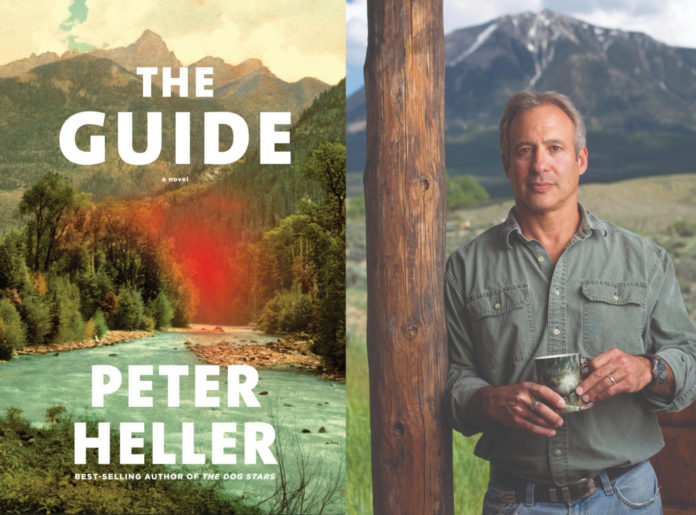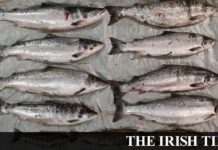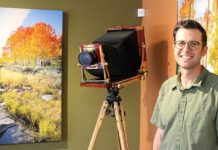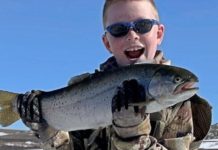Even when Peter Heller was an award-winning adventurer and outdoor journalist, he wanted to be a novelist.
“I’ve been a fiction writer since I was 11 years old. Journalism was a way to make a living,” he says. “I used magazine writing as a training ground, chops as poets, and developed characters that popped out of the page. Even when I was writing about hydraulic fracturing during Businessweek, I wrote as lyrically as possible and told the story. I knelt down. I do fly fishing deep in the stream. ”
The protagonist of Heller’s latest novelist, The Guide, spends many of his books on the water, also on fly fishing. But he also has to navigate the recurrent and mutating virus (this book was written before the emergence of Delta variants) and how it distorts society in unexpected ways. ..
Heller’s first novel, The Dog Stars, was a well-reviewed bestseller in an apocalyptic setting. “I just started on the first line, I had a favorite rhythm, and the music in that language drew me into the story,” Heller recalls. “It wasn’t until the third page that I realized it was a post-apocalyptic novel. I wanted to write a literary novel, not a genre, but the voice was so fascinating that I just wrote it.”
He exercises authority at some point, especially in revisions, but Heller says the key to his writing is “to tell himself.” Most of the time, I let the language carry me around the corners of the story and I don’t know what’s there. I want to be as excited as the reader. ”
Each book carried him on a very different route: “The Painter” was about a talented but troubled artist, “Celine” focused on the private eyes of a psychic aristocrat. And, “The River” chased two young college men on a canoe trip, a crackling sound with danger from the environment and people. But for the first time, Heller has returned to a semi-familiar place. Although Jack is thousands of miles away from his canoeing journey, he is once again at stake as the protagonist of a “guide” where the rich find new ways to insulate. Self from the rest of society.
Heller explains why Zoom brought him back to Jack, the role his wife played in his work, and how he harmonizes the worst human nature with the beauty he sees every day. talked.
This interview has been edited for length and clarity.
Q. Why are you returning to Jack?
Jack lives in my heart like an old dear friend who knows my life, so I wanted to check in and see him. Thinking that way is a bit crazy and very beautiful.
Some of my characters are portraits of people I know. Jim Wagner of “The Painter” is a friend of Taos and a real artist Jim Wagner. I had to ask him if it was okay — he loved the book, but what he said was very realistic to him.
However, some characters are doppelgangers for me. They love what I love and hate the same. I really have something to do with Jack. He is very similar to me, his alertness to the people, his passion and loyalty is very similar to mine.
I’ve just completed another novel that isn’t about Jack, but I’m about to start the next one. You might check again what he is doing.
Q. Jack’s friendship with Win, at the heart of The Heart of a River, is based on your true friendship.
The book has a story of two origins. What is the scene where two boys hike the mountains at a college orientation and go out before anyone else? It really happened to me in the freshman year, and he is still one of my beloved friends.
But the river and canoe trip comes from what happened to my current wife. On our third day, she had to unload the gym bag first. It was very heavy and I saw it with a dagger and a shuriken. She was training to become a ninja. She looked pretty tough as she was able to protect me, and I had this mission to canoe the Winisk River in Canada, the real version of the river in the book. So I invited her, but found that she had never camped or canoeed – and this is a deep wilderness.
As she was packing, she said, “Can I bring my eyebrow tweezers?” I said no. I should have been more generous – they weigh only 1 gram. She got me back. She loves fossils, and as we enter these torrents, we load limestone shale rocks with lots of shells onto our boats. The boat is low on water. One morning she had a 12-pound limestone block and a small little clamshell in one corner. I said “Kim”. She squinted and said, “Don’t minimize me,” and that’s when I knew I was going to marry her.
Q. Your book features extraordinary nature writing, but it’s a tense thriller. How do you find the balance?
My wife will take care of it. I will read her chunks out loud and see her nod at the edge of the couch. I heard a tweet saying “too much fishing”, so cut it in half.
But you can feel calm and escape, explore the shores of the lake and eagle hunting, have a literal sense of timing, and feel when you need to pick it up and make it. Tighten again.
Q. Jack often survives because he believes in the worst of the people. Is it your view of the world?
When I’m in a situation, I’m more like Jack than Win.
And I feel that humans are a little wrong. What we do to the earth is more than a crime – I think it’s a sin.
Climate change provides some form of information to almost every book I have. It hurts that tens of thousands of species are already in the dark. It’s not as if the apocalypse is coming-for those species it’s already happening. We are causing evil on earth. I believe in evil. Evil like the Holocaust and Rwanda is in us.
Still, so are the poems of TS Eliot and the Tang dynasty and the kind acts we see every day.
Q. This book also describes wealth and privilege, and abuse of power, and I find it very relevant.
Everything that is happening in me has been expressed and I have been thinking a lot about the hollowing out of the middle class and how wealthy people exploit people. .. “hunger game. “ I’m really scared.
Q. But your book is neither dogmatic nor angry.
I’m in love when I’m writing. And I’m not a desperate person. I find a lot of joy every day, which is usually connected to nature. If you have a chance to do something rewarding, you need resilience. To do that, we need to have fun and take care of each other. In my writing, I am delighted and want to take care of my readers in a way. That’s the only way to tackle the most difficult challenges.
Author Peter Heller says he finds joy in nature even as humans create climate change apocalypse – Press Enterprise Source link Author Peter Heller says he finds joy in nature even as humans create climate change apocalypse – Press Enterprise
Credit: Source link






























